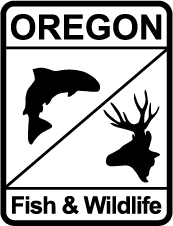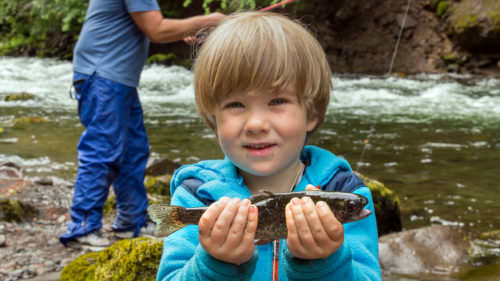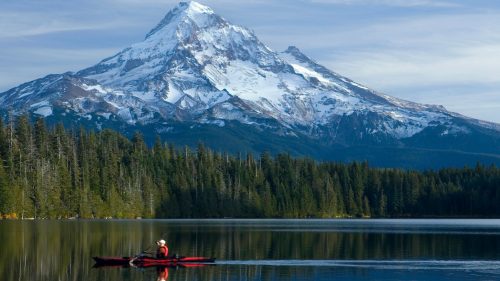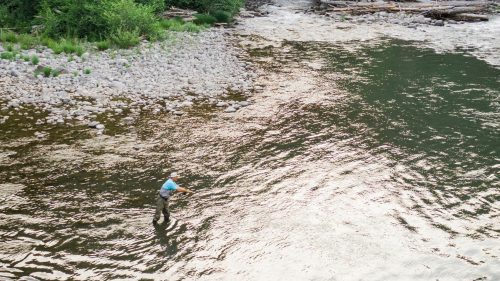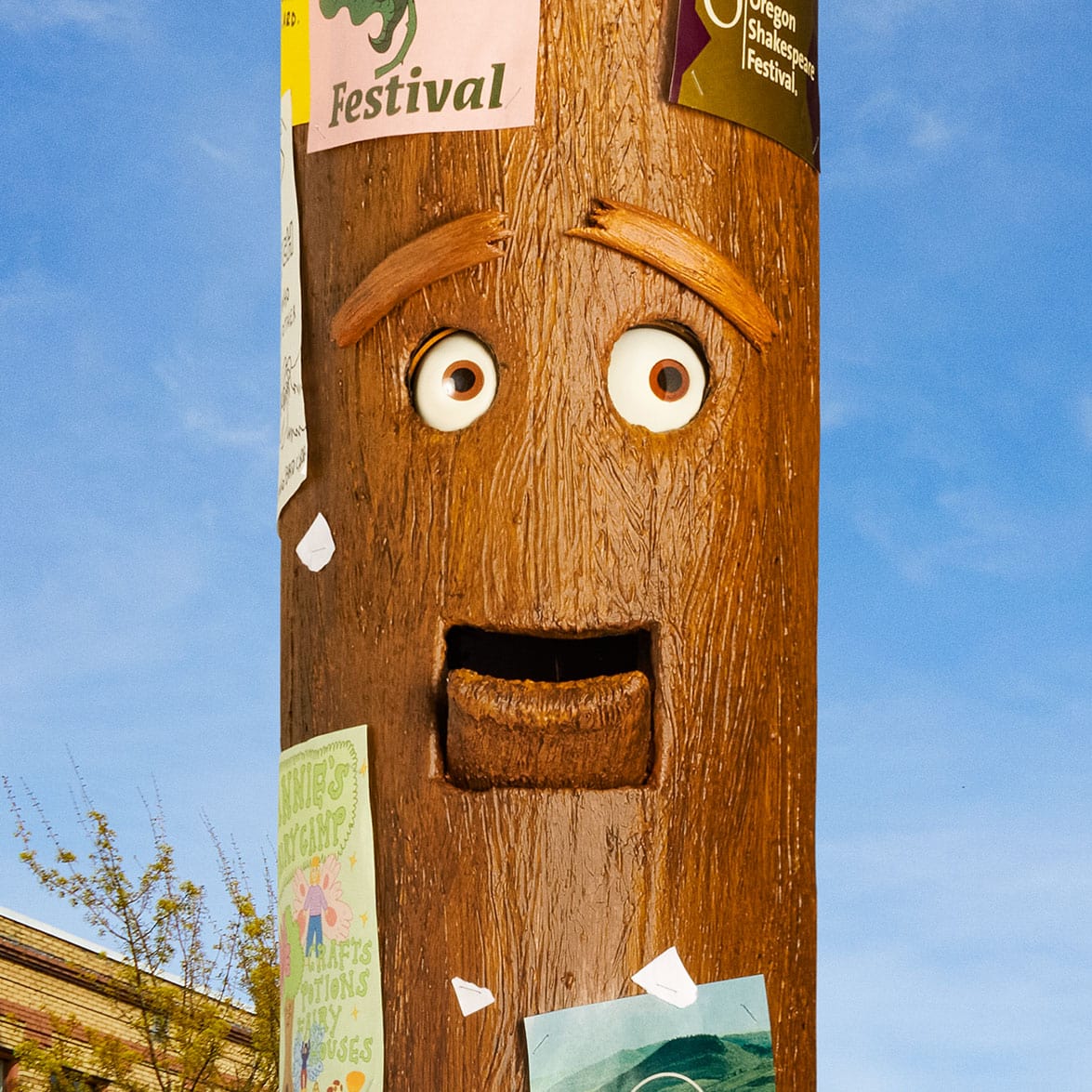It captures the essence of all that is Oregon. Peaceful mountain lakes. Rivers mighty and small. Storied wildlife and a dash each of adventure and self-sufficiency. It gets people outside, together, and creates lifelong memories and pastimes. And with a little luck, it can make for a tasty dinner.
It’s fishing, of course. And nowhere is the angling diversion more at home than right here in Oregon.
For those who have never dropped a line into a lake with the hopes of landing a plump trout — maybe because it seems too daunting or complicated — take heart. Fishing in Oregon is easy, approachable, accessible and available to anyone who wants to give it a try.
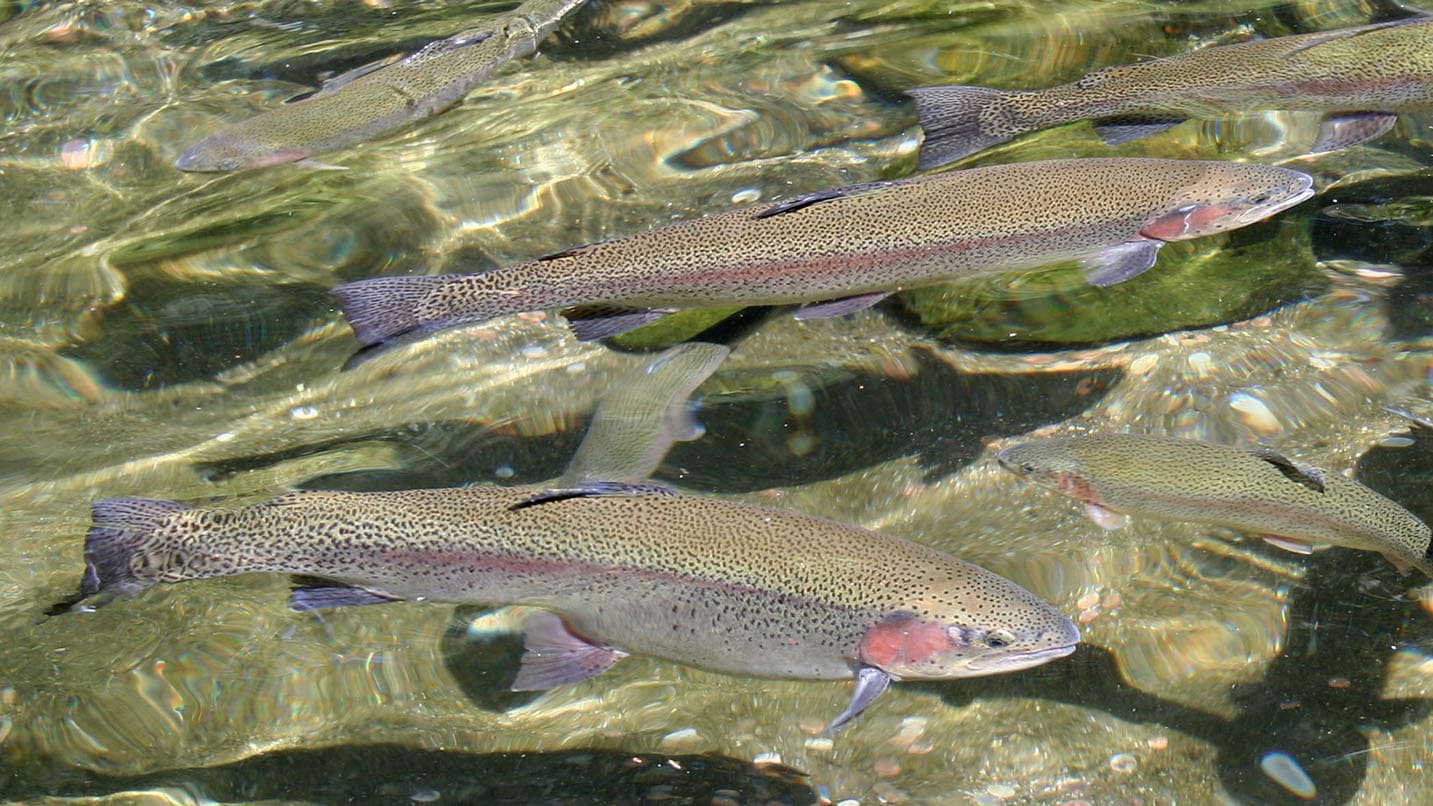
Start With Trout, the State’s Top Game Fish
Oregon’s waterways are home to a wide array of fish — dozens of species in all — from salmon and steelhead to bass, carp, catfish and many others. But for first-time fishers, there’s no better bounty than trout.
The state’s top game fish, rainbow, cutthroat and other species of trout can be found in abundance throughout Oregon’s lakes, rivers and ponds. That’s in part because of native populations here, but even more so because the Oregon Department of Fish and Wildlife (ODFW) stocks more than 7 million trout across Oregon each year. With that many fish swimming around, novice anglers are likely to land one with little effort. Check the ODFW’s stocking schedule to find out what’s being stocked when.
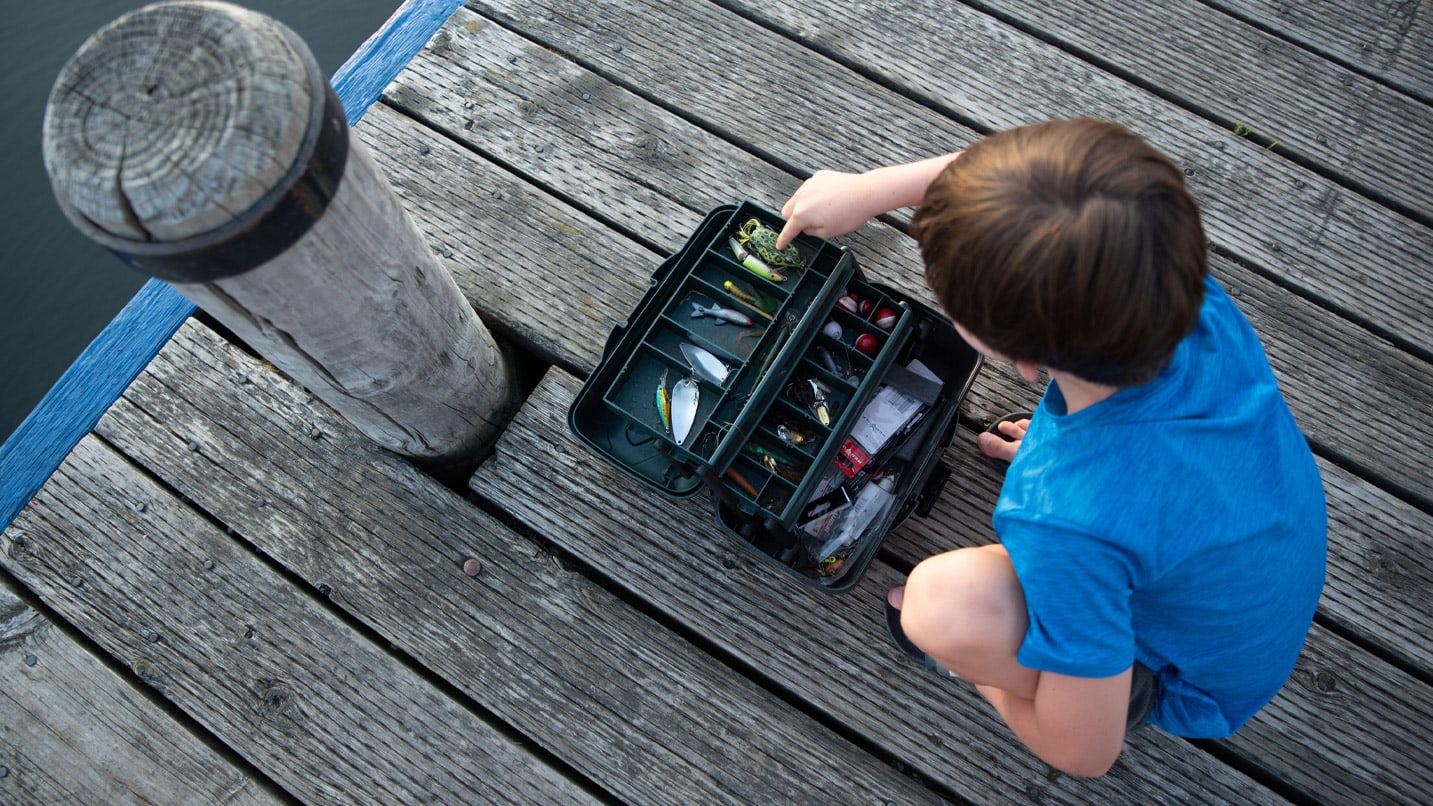
Get Geared Up With a Simple Kit
Intimidated by what seems like the vast amount of complicated gear that’s needed for fishing? Don’t be. A simple setup of a rod, reel and tackle is all it takes to get going.
ODFW suggests a medium-action rod of 5.5 feet with a spincast or spinning reel and a 6- to 12-pound monofilament line. It also recommends a bobber, a No. 7 snap swivel, a size 8 bait hook and a No. 5 lead shot. (For a nice primer describing the various tackle you’ll need, check the ODFW’s “Learn to Fish” page.)
For bait, start with the classic worm or PowerBait. This setup will work well for fishing for trout, bass and other fish in lakes and ponds. Some bodies of water in Oregon only allow certain kinds of bait. Make sure to check regulations before you cast your line. Add a few 1/16-ounce spinners — shiny and often colorful lures that spin in the water to attract a fish’s attention — so you can cast out and tempt fish as you reel your line in slowly. With a few modifications, this setup will also prove effective in rivers and streams.
If fishing becomes part of your routine, it’s helpful to invest in a tacklebox stocked with a multitool, extra hooks and bait, and other tools. And bring along a cooler of snacks, drinks and sandwiches to stay fueled or to pass time just in case the bites are few and far between.
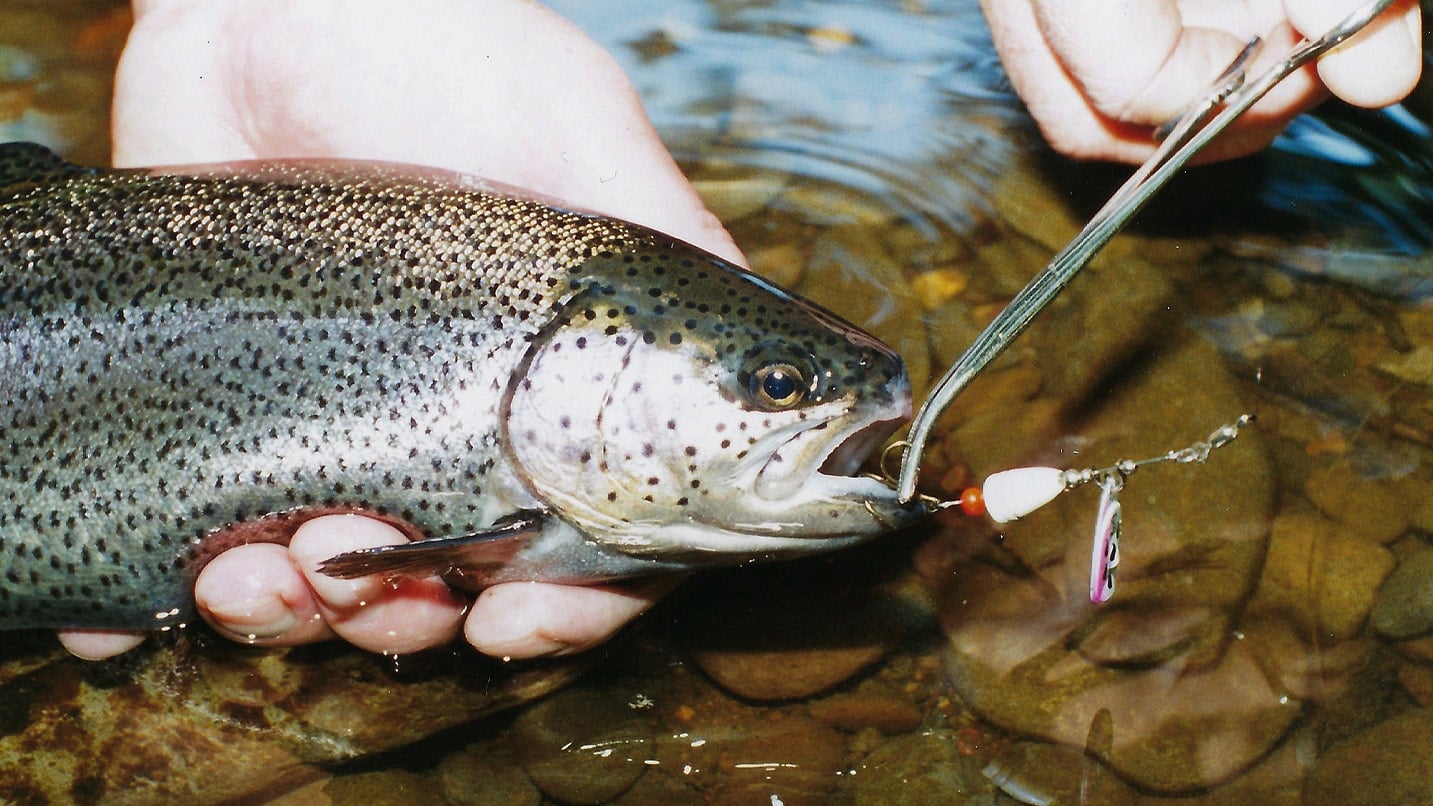
Find a Fishing Hole Near You
Like Oregon’s fish population, the state’s fishable waterways are everywhere. From city-bound lakes like Coos Bay’s scenic Empire Lakes to remote lakes such as Lost Lake on Mt. Hood, and from the Alsea River on the Oregon Coast to the Willamette and Clackamas rivers around Portland the famed Deschutes River in Central Oregon, the state is awash in water that’s perfect for first-time fishers and families.
And thanks to ODFW’s “Easy Angling Oregon,” which identifies fishing-friendly hot spots in every region of the state, it’s easy for anyone to hunt down a fishing hole.
Once you figure out where to go, consider when. Hit lower-elevation lakes in the spring and fall when the water is cooler and the fish are active. In summer head for the hills where water stays cooler. In winter try the Willamette Valley or the Oregon Coast, which stay a little warmer than other parts of the state.
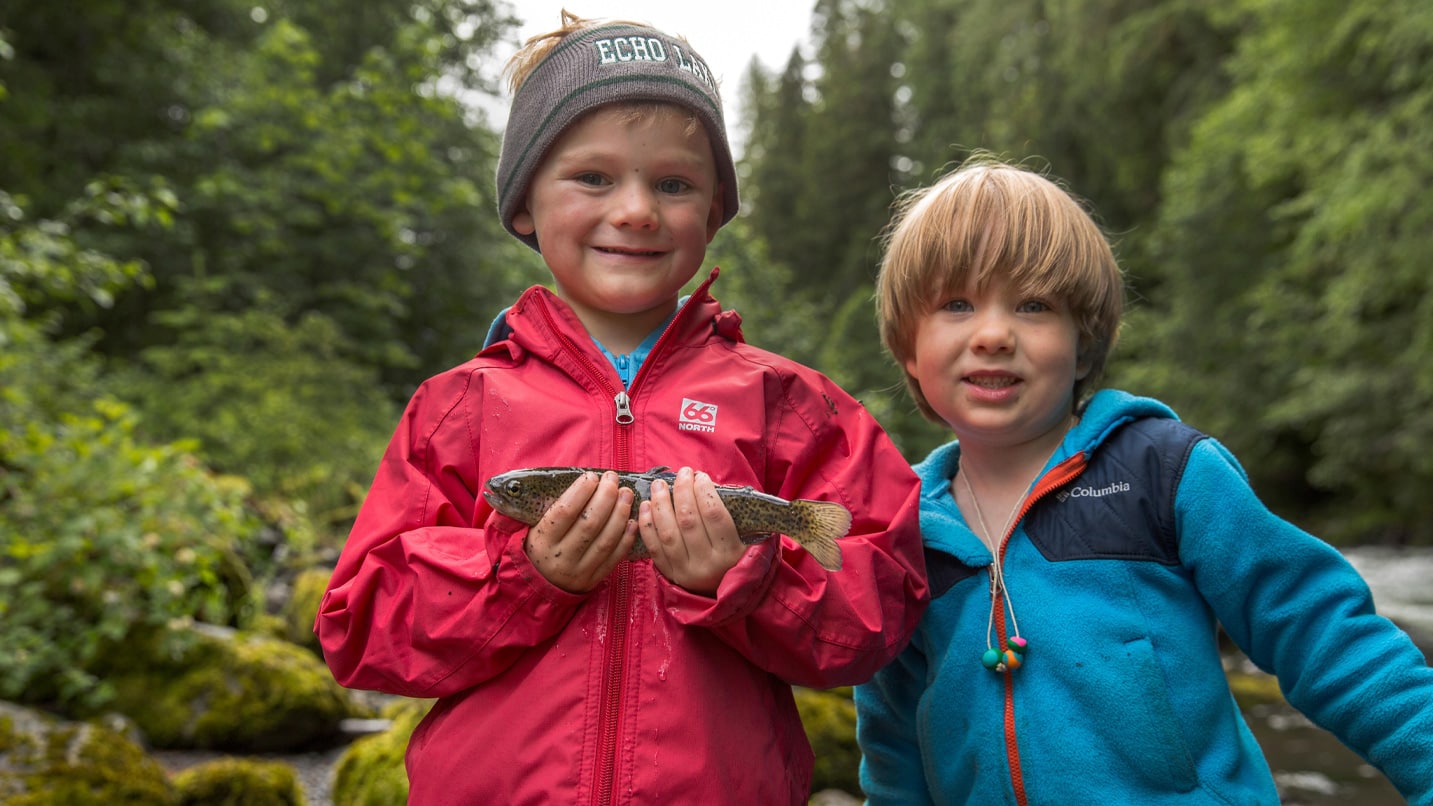
License, Please
Anyone who fishes in Oregon needs to have the proper license, except for kids 11 and under, who aren’t required to have one. For beginners casting for trout, bass and other species, a straightforward angling license is all it takes. They are available as single-day, multiday or annual passes and can be purchased through MyODFW or through various sporting-goods stores, groceries and other vendors.
Additional tags may be required for those fishing for salmon, steelhead, sturgeon or halibut, and a Columbia River Basin Endorsement is needed for anyone fishing for salmon, steelhead or sturgeon on all rivers and tributaries of the Columbia River. Note, too, that there are limits on how many fish you can catch and keep in a day depending on where you are fishing and what you’re fishing for.
Every year ODFW hosts several Free Fishing Weekends, when anglers can fish, crab or clam anywhere in Oregon without a license, tag or endorsement. For 2022 the remaining Free Fishing Weekends are June 4-5 and November 25-26.
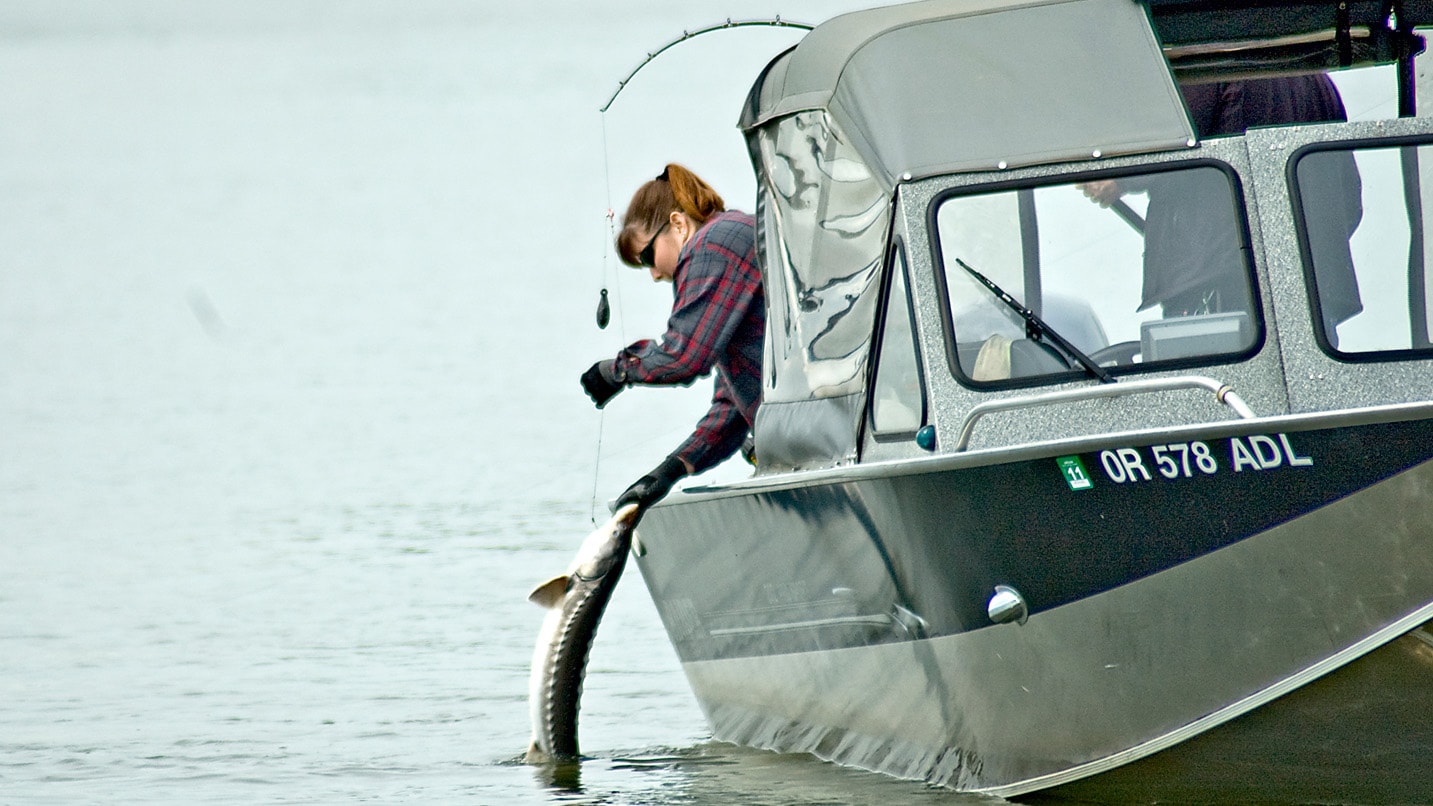
Last Cast
So you’ve caught a fish and it’s on your line. Now what? If you’re fishing in a lake, pond or reservoir, chances are it’s a stocked fish that you can take home. However, most trout in rivers and streams are wild fish and often must be released if caught. ODFW offers helpful information on how to catch and release.
If you catch a fish you’re going to keep, ODFW also has an incredibly helpful video series that will walk you through how to reel in your fish, humanely dispatch it, clean it and cook it up.
Fishing in Oregon is a fun way for anyone to experience so much of what the state has to offer. Use the information provided here to plan a first outing. Still need more background? ODFW is the place to go. The agency has all kinds of helpful information, including tips on cleaning fish, tying knots, finding accessible fishing spots, fishing techniques, advice for more advanced fishing styles and everything else you need to land your first fish in Oregon.
